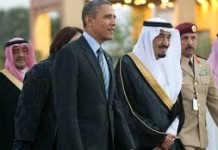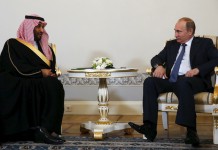The message from President Obama, in reply to General Stanley McChrystal’s assessment of the Afghan situation, is that he wants to own a different war.
The President has delayed the decision on sending more troops to Afghanistan and has thus conveyed that he wants to own a different kind of war in Afghanistan, clearly not the one left by his predecessors. Thus to his mind the decision is not just, to send or not to send more troops. He is questioning the underlying assumptions upon which the new strategy is going to be based, before addressing the question of resources.
Analysis
In recent days and months a new strategy, which some are calling Overseas Contingency Operations, has been taking shape. The premise of which is:
- Eliminating the top leadership and sanctuaries of extremist organizations
- Using special forces, drone and other smart technologies to achieve the above objective
- Depend on local and indigenous forces including public support, wherever possible
- Involve and appeal to the interests of the regional and global players, to find a solution for Afghanistan
- Give the above time to yield results before deciding; to send or to not send more troops
There also appears to be a difference in emphasis upon which the White House is operating as compared to the Military and the Congress. The White House has to decide if it shifts more towards the view of the Congress or the Military. How the Afghan conflict progresses will also determine which political party controls the Congress, as the midterm elections are to be held in about a year.
According to public statements, the military leadership is clearly going to ask for more troops and resources while the winds have changed in Washington. The first sign of this came on September 17th as the White House announced overhauling of the missile defense system, and thus pleasing Russia. Favors from Russia are essential for controlling not only Iran and the Middle East but also the Afghan conflict. Russia had recently allowed the use of its territory for transiting military supplies, bound for coalition forces in Afghanistan.
Meanwhile, Pakistan whose campaign against the extremists has met with great success recently, has suddenly begun to resist the terminology and the premise of AfPak policy i.e., linking the two countries of Afghanistan and Pakistan under a common strategy. This is despite being on board during the conceptual stages of the policy formulation. President Zardari is expected to exert this point during his meeting with Obama this week. The status of the final frontier for Pakistan, operation Waziristan, would definitely top the agenda as well. In the context of changing US-Russia-Iran relations and escalating diplomacy between India and Pakistan, PoliTact foresees a more aggressive Pakistani approach towards Waziristan. The issue is no longer the will and capability of Pakistan Army but more of timing and the geopolitical environment.
Eight years after the war started, the American strategy for Afghanistan has reached a crossroad. President Obama appears unwilling to own the war he inherited.
Tell Us What You Think



